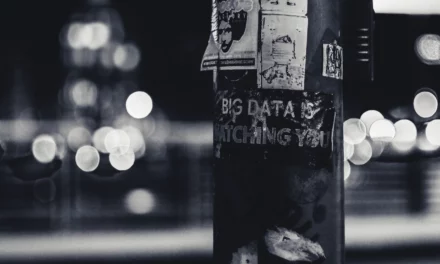Guest editor: Saswati Soumya
The District Court of Central Netherlands broadcasted the matter concerning preliminary injunction between the restaurant Waku Waku and the Municipality of Utrecht via live stream. The court asked media representatives who wanted to attend the case to come forward and broadcast the case live. While, the litigants and media are given priority, there is order of entry for others who were interested. This case concerns the objection of the restaurant owners with the Utrecht municipality’s charge that restaurant must remain closed to the public that have been not been checked for corona ticket & the municipality will itself close the restaurant if there is no adherence. [1] This is one of the cases that occurred last month. However, this article deals with the time period when the pandemic struck. George Flyod’s incident highlights the importance of “right to be free from unreasonable seizure and unreasonable force by a police officer”. Broadly speaking, the investigation of this incident examines if there is a “pattern or practice” of policing practices which are unconstitutional and in turn unlawful.[2] Covid-19 has changed the setup of interactions between accused and their families. If a correctional center which is a part of the state prison is more than an hour away, videoconferencing facility acts as an enabler in connecting accused with their family, but with masks on.[3] The situation worsens if the person concerned includes vulnerable groups such as refugees and asylum seekers. Article 4 of the International Covenant on Civil and Political Rights provides for derogations by State Parties in the time of public emergency “to the extent strictly required by the exigencies of the situation”. Prisoners faced overcrowded living conditions, which lacked basic sanitation & hygienic facilities making them vulnerable to diseases. The two fundamental rights, namely right to public hearing and the right to privacy are in conflict with one another. As per a report presented in the Annual Judicial Seminar of the European Court of Human Rights, 25 percent of the surveyed countries in the European Union live streamed the hearings to lay emphasis on the “public character of the hearings”accompanied by limiting the number of people who can be present in the court. This is tied with amendments in the national procedural law that has facilitated courts in performing their judicial functions during the pandemic. However, this has not affected the forms of judgments or the number of judges that are required in order to decide cases during pandemic. Within the right to be heard in a public hearing, it is critical to keep the following factors in mind, namely
- What is the area of law?
- Who is the legal person that is involved? Is the legal person a minor or a prisoner?
- What is the type of court? Is it the court of first instance, or appellate court, or cassation court or constitutional court?
- Is the hearing optional or mandatory?
- Does one have a right to be physically present in a hearing?
- Is it possible to hold the hearing remotely?
- Is it possible to waive the hearing? If yes, then which authority has such power?
It is advisable that a “court template” be used as the background in digital public hearings, wherein all the participants attend the hearing from home, including judges. In the Netherlands, the courts were closed from March 16, 2020 and reopened in the middle of May, 2020. It is to be noted that, from the perspective of a Data Protection Officer, two core principles of the General Data Protection Regulation, namely purpose limitation and data minimization could be triggered if proceedings are live streamed without taking the consent of all the participants who are present in the hearing & thereafter posting the video recording in the website of the court the day after hearing. The evaluation of “freely given” and “fully informed” consent rests on examination of specific situation of “women, children, older persons, persons with disabilities, persons deprived of liberty”. Specific attention is to be given for people who “may be forced or manipulated into providing their consent “that is neither fully voluntary nor fully informed. In a criminal proceeding, the complex question that comes up is that can the right to be physically brought before the court be limited in some circumstances? Would that amount to an acceptable derogation because it is an emergency? In such a case, does it matter of all criterion have been met for limiting or derogating from human right protection under international law? If one is denied the right to be brought physically before the court, does the accused have the liberty to challenge the legality of their detention? Can the applicant still have the right to have confidential communication with their lawyer, without affecting their right of “non-discrimination” and right to have “equal access to justice”? Is it possible to have access to videoconferencing facility only for a specific time limit that is necessary and proportionate to the domestic & local circumstances of Covid-19 pandemic? As per decisions of the European Court of Human Rights, physical presence of an individual is necessary if the “character” of a specific hearing makes the physical hearing indispensable, i.e., matters where it is crucial to obtain the testimony of the person or matters wherein credibility is needed to be assessed. The determination of the following key issues by the ECtHR is important for concluding if there has been a violation of the ECHR or not, namely (a) whether physical presence is necessary and has an impact on the fairness of a specific hearing? It has been held by ECtHR that, participation of the participants vide videoconferencing facility may be acceptable in “criminal appellate hearings and hearings in civil matters”. This is because appellate proceedings may take place on the basis of written presentations. The aforesaid two types of proceedings contrast with proceedings in a criminal trial. A fair and a just criminal process require that the accused should be present and this is one of the most important rights of an accused. This is because, when one is deprived of their liberty, then one is required to be physically present in hearing “even before formal charges have been asserted” in order to exercise its right to access to court so that they can challenge detention. This is an example of a right that cannot be derogated even in the situation of public emergency. Such liberty deprivations occur in many scenarios, including but not limited to, police detention facilities or in compulsory quarantine centers. Liberty deprivation could range from torture to other forms of ill-treatment and abuse. It becomes difficult for the judiciary to detect abuse in the absence of physical appearance. Rather, physical appearance breaks the chain of control exerted by the detaining authorities on the detainee. If there is no video screen, then the detainee would have a better sense of safety and is more likely to speak about instance of abuse before the judge. The awareness of this possibility would restrain the detaining authorities from engaging in abuse and would in turn enable having mechanisms in place that would “verify the well-being of detainees”before being remanded to prisons. This is inevitably linked to the right of defense of accused that ought to be guaranteed at the stage of pre-trial detention via video-conferencing facility. As an individual member of the public, it is open to request for access to the video feed of hearings, irrespective of the shift from in-person hearings to video-conference hearings.[4] During Covid-19, the accused was required to use the device of the police officer for taking part in hearing, wherein the judges are unable to see the whole body of the accused, and can see only their face. Thus, important stages of criminal proceeding were not duplicated in a videoconferencing facility. [5] In such cases, the courts would nevertheless be required to conduct a substantive analysis of the case and publish the reasons for doing so; (b) are there any other options apart from total exclusion of the participant, if physical presence is not strictly required? If yes, what are such options? and (c) what are the compensating measures that would be taken in order to “counter-balance any prejudice” to the relevant party? Can it even be considered as an option? Nevertheless, it is clear that such questions are beyond the scope of executive branch of the government & are rather fall under the exclusive jurisdiction of the judiciary. The judiciary is also in charge of overseeing the operations of its proceedings. [6] It is counter-argued that, the public administration of justice might get a higher weight than right to privacy because processing of personal data is necessary for the performance of a task in public interest. Article 2 of Tijdelijke wet Covid-19 Justitie en Veiligheid (“Temporary Dutch Covid-19 Justice and Security Act”) is the amended procedural law that allows for video hearings via “two-way electronic means of communication”. Amidst this, it is imperative to keep in mind that, the question of lawfulness of detaining a detainee is speedily decided by the court and the detainee is aware of their right. In the absence of video conferencing, it is possible to conduct hearing via telephone keeping the mandates of fair trial in mind. Hybrid hearings are possible wherein participants to a proceeding cannot travel due to restrictions/ infected & quarantined / isolated in homes as a health safeguard. Article 6 of the European Convention of Human Rights deals with the right to a fair and public hearing within a reasonable time by an independent and impartial tribunal established by law. The pandemic was followed by lockdown and closure of all the Dutch courts. All in-person hearings were cancelled. There has been a case, wherein it was not possible to consider urgent request of an immigrant to be heard in person or by videoconferencing because of initial infrastructural problems in the pandemic. Immigration detention centers were largely unprepared to follow social distancing and the 1.5m distance rule in rooms wherein videoconference would take place. In Bah v. the Netherlands[7], a national from Guinea was placed in an immigration detention on March 2, 2020. The applicant’s asylum application was rejected. The pandemic struck when he lodged an appeal with the regional court. His appeal was dismissed and his further appeal to the Council of State’s Administrative Jurisdiction Division was also dismissed. It is to be noted that the applicant was not deprived of liberty. He was detained so that he could be deported. It was decided by the later court that, the aforesaid situation indeed limited the right of the applicant to be present at the hearing, as per domestic law. This limitation was foreseeable. The case law suggests that, the requirement of a “public hearing” as laid down in Article 6 is stringent than the scenario presented before the court. In this case, the measures that were taken in response to the applicant’s request (a) served the interest of public health; (b) proportionate limitations on applicant’s rights; (c) did not infringe the essence of applicant’s right in question. In fact, the proceedings that took place was adversarial in nature. The applicant was represented by and heard through his lawyer. The applicant’s lawyer attended the hearing by telephone. He was in regular contact with his lawyer. It is concluded that, there is a balance which is drawn between the general interests of public health with applicant’s other fundamental rights. It is acceptable practice if the detention order of the applicant is examined in the absence of the applicant in the hearing / videoconference. It is alright not to secure the attendance of the applicant in such a situation. Last but not the least, there is a difference between the approach taken by the courts in Strasbourg and that of Luxembourg. Protection of privacy of parties outweighs the interest of a public hearing in Luxembourg. On the other hand, the “public character” of the proceedings & the public hearings outweighs the possibility of not using facial recognition software to identify the parties in Strasbourg.[8] To conclude, ECHR, an instrument of international law and the EU law, a proper international legal system need to be taken into consideration while using video conferencing facilities. In comparison to Article of ECHR, Article 6(1) is considered as lex specialis. However, both the provisions protect human rights independently. Immigration cases are construed as exceptional cases wherein Article 13 overpowers the ratione materiae of Article 6, as per Strasbourg case laws. Earlier video conferencing facilities were used in specific procedures, like in cross-border legal proceedings or for specific activities, such vulnerable victim hearings that needed to be carried for their protection or in proceedings wherein witnesses’ testimony is needed in organized crime trials. However, now, it has become imperative for a judge to recognize visually the parties, to see the speaker and the listener, without missing anything. From a privacy perspective, care is to be taken so that there is no interference and no unofficial recording of the proceeding. Once the session has ended, the former participants cannot re-enter the virtual room without an explicit authorization. There ought to minimum usage of discretion and arbitrariness while differentiating the treatment of cases like
- Activity that is fit to be conducted in a videoconferencing rather than in person hearing keeping the comfort of the detainee n mind;
- Activity that can be carried out in either ways, but requires a careful assessment of the complications, e.g., proceedings which need parties like the interpreters; and
- Activities that is incompatible with videoconferencing, g, a scenario wherein evidence is taken and witnesses of opposing sides face a confrontation, which in turn has psychological impact on judicial assessment of the case.
It is concluded that, videoconferencing facility must be opted as a result of the agreement between parties as opposed to a court order. It may not be a neutral stance, if this is used to take evidence from the parties because it will have an impact on the outcome of the case and how the public perceives the ruling.[9]
[1] The Judiciary News, ‘Lawsuit to follow Utrecht restaurant Waku Waku via livestream ‘ (Rechtspraak, 29 September 2021)
[2] Associated Press, ‘4 former officers charged with violating George Floyd’s civil rights plead not guilty’ (NBC News, 14 September 2021)
[3] Nicholas Chrastil, ‘A “Jim Crow Jury” prisoner fights for freedom’ (The Lens, 4 October 2021)
[4] International commission of jurists, Videoconferencing, courts and Covid-19: Recommendations based on International Standards ( 2020).
[5] Special correspondent, ‘Right to fair trial at stake with videoconference hearings, says report’ (The Hindu, 13 May 2021)
[6] International commission of jurists, Videoconferencing, courts and Covid-19: Recommendations based on International Standards (2020).
[7] 35751/20, Decision 22.6.2021 [Section IV],
[8] Bart Jan van ettekoven, ‘”Access to Justice during and after the Coronavirus pandemic” – An exchange of views – human rights restrictions, procedures adopted, lessons learned”‘ (European Court of Human Rights – Annual Judicial Seminar, 10 September)
[9] Gori, P., Pahladsingh, A. Fundamental rights under Covid-19: An European perspective on videoconferencing in court. ERA Forum 21, 561–577 (2021). https://doi.org/10.1007/s12027-020-00643-5.








